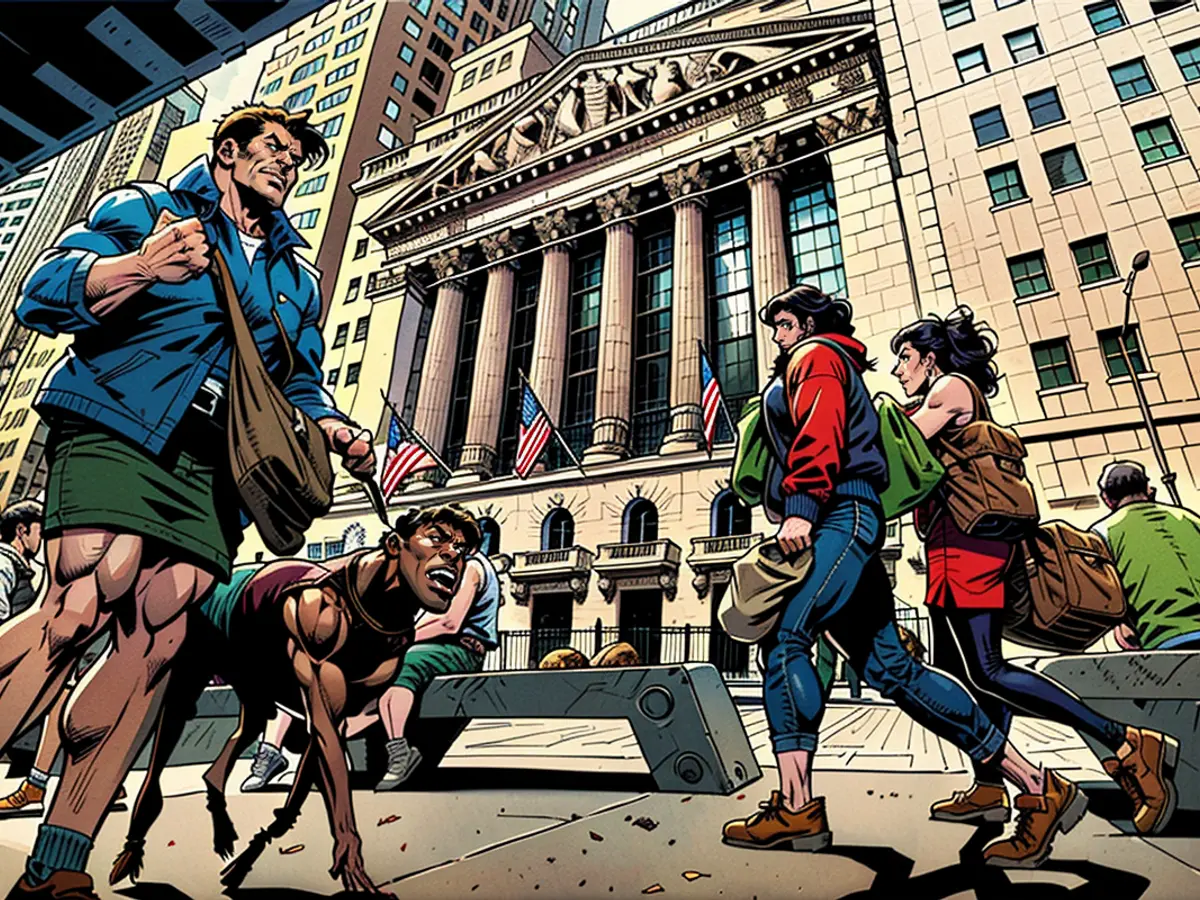Market giant Dow experiences a significant surge of 500 points
The Dow gained 500 points, or 1.2%, on Monday. The broader S&P 500 increased by 1.1% and the tech-heavy Nasdaq went up by 1%. Initially in the afternoon, the Dow was up over 600 points.
This is quite different from the atmosphere last week, when investors penalized stocks in anticipation of a less than stimulating jobs report as forecasted by Wall Street. Come Friday, investors received what they anticipated: a mediocre, yet not disappointing, snapshot of the labor market that indicated America's job market is expanding although not at the swift pace of previous years.
Fear permeated Wall Street last week, and while it persisted as the dominant emotion on Monday, CNN Business’ Fear and Greed Index noticed a slight uptick, drawing near to a "neutral" sentiment.
This week, investors will be presented with another assessment of US inflation data, beginning on Wednesday morning with the Consumer Price Index report. This is projected to demonstrate that inflation significantly slowed down in August - another demonstration that the Federal Reserve's combat against inflation is showing results.
The Fed has kept interest rates elevated to contain inflation. However, there is a (intended) side effect to rate hikes: they slow down the economy. Raises in interest rates increase business costs and decrease profitability. This tends to slow hiring, which means fewer employment opportunities and fewer funds available for consumers to spend. Consumer spending composes the vast majority of America’s economy, which means that the Fed usually leads the economy into a recession when it raises rates - although that's not the aim.
The reality that America is not in a recession after extended periods of high rates is nothing short of remarkable. Until recently, employment opportunities continued to flourish and consumers continued to spend - primarily because pandemic-era stimulus hadn't fully worn off yet and because numerous homeowners had secured low-interest mortgage rates that freed up funds.
This might be a factor that investors are reacting to on Monday: yes, the job market is showing signs of exhaustion, but the recent selloff could be exaggerated.
The fact that the economy is still creating jobs at a steady pace is precisely the “soft landing” scenario that many had expected (and were doubtful could be achieved) when the Fed started increasing rates a couple of years ago.
It's still early to celebrate, but it certainly looks like this is the best-case scenario, given where we were a couple of years prior.
Despite the initial fear and selloff, investors might be realizing that the job market is still creating jobs at a steady pace, potentially leading to a reconsideration of their investment strategies in the business sector. With projected positive changes in US inflation data, this could be an opportune time for those involved in business investing to reevaluate their investments.








